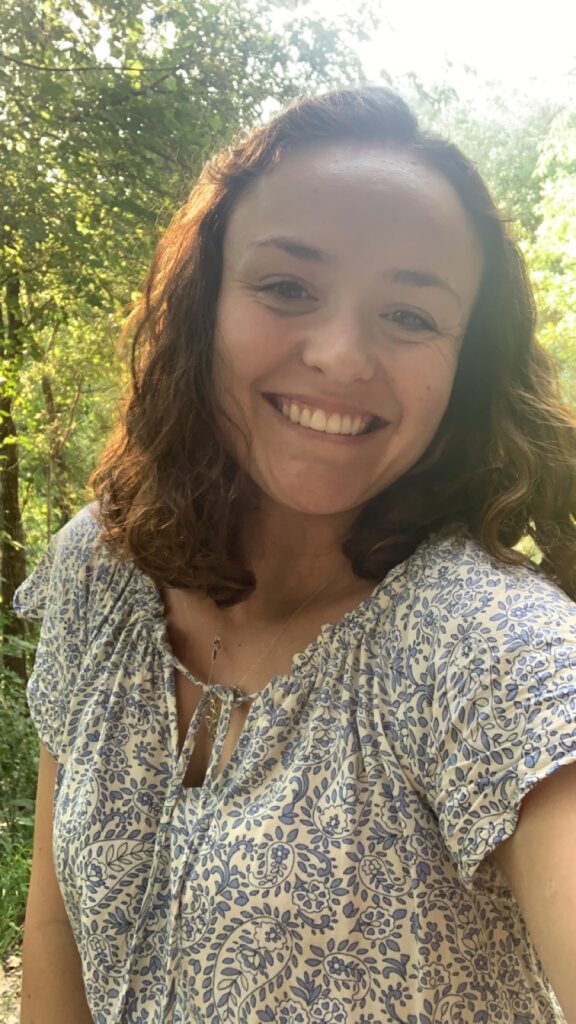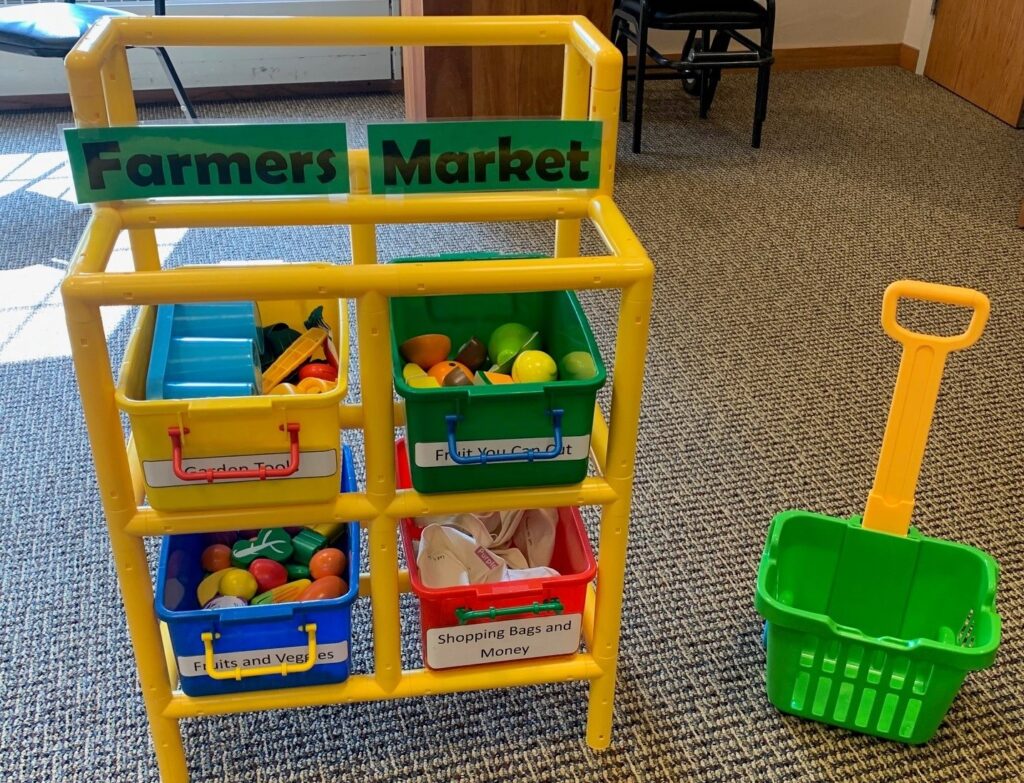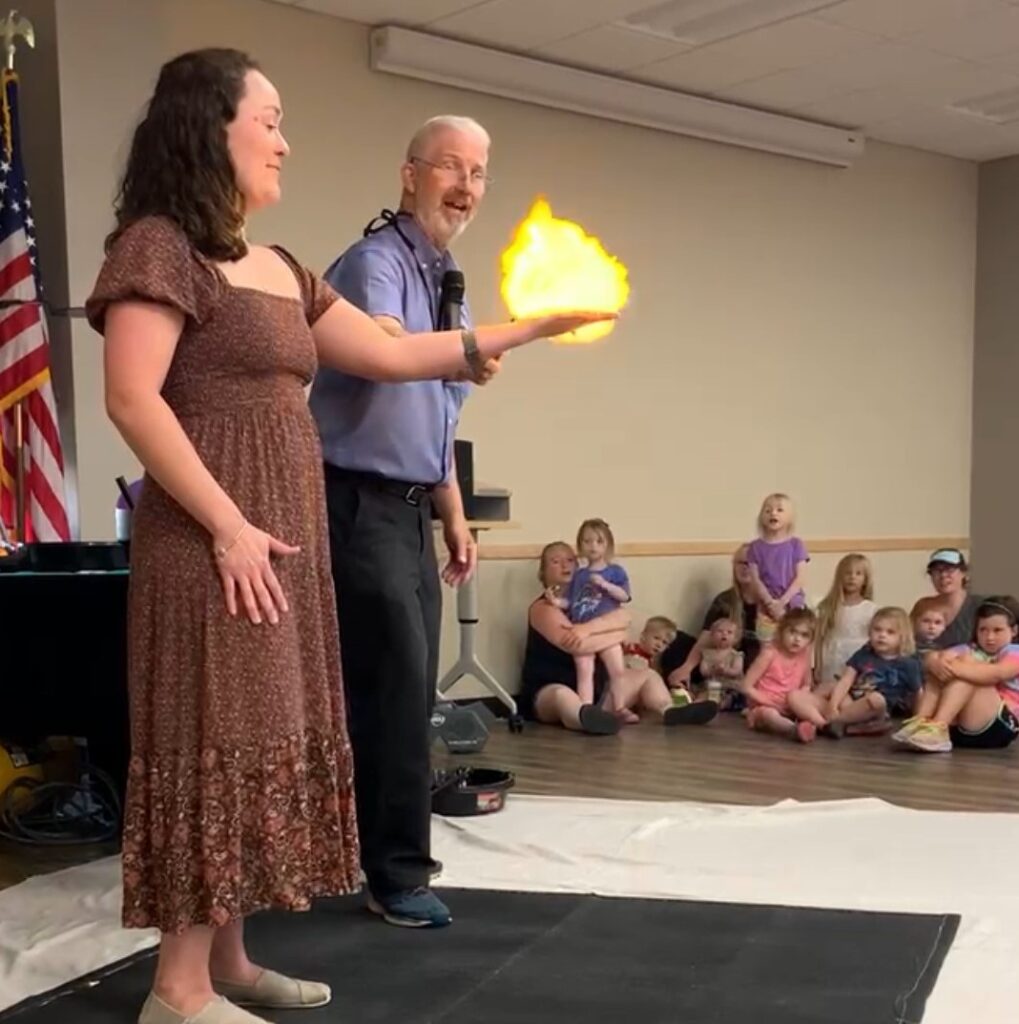Exploring meaningful PBS KIDS programming at La Crosse County Library
PBS Wisconsin Education’s PBS KIDS Library Educator and Community Learning Cohort recently wrapped its fourth year of learning sessions.
07/15/24
PBS Wisconsin Education’s PBS KIDS Library Educator and Community Learning Cohort recently wrapped its fourth year of learning sessions.
07/15/24
PBS Wisconsin Education’s PBS KIDS Library Educator and Community Learning Cohort recently wrapped its fourth year of learning sessions. Open to Wisconsin library staff, the program teaches participants about PBS KIDS media implementation in early learning spaces. Since its inception in 2021, the program has served nearly 100 library staff from every library system in the state.
“The library cohort is an impactful program for Wisconsin library professionals because it helps empower them in their roles as media mentors, giving them the confidence to access and activate high-quality PBS KIDS content in their libraries,” said Mouna Algahaithi, PBS Wisconsin Education early learning engagement specialist and designer of the cohort. “It also connects them to one of the most important resources of all: each other, which is unique because there aren’t many other opportunities for that kind of intentional learning and connection to happen at no cost.”
PBS Wisconsin Education recently caught up with 2023 cohort member Kirsten Caldwell, youth services librarian at La Crosse County Library, to learn about her experience and how it’s impacted her practice.
PBS Wisconsin Education: Why did you decide to join the PBS KIDS Library Educator and Community Learning Cohort?
Caldwell: I loved PBS as a kid and remember running from the bus stop to the TV to watch Arthur, which many of us probably did. Now, I love PBS for my toddler, who has learned important social and emotional skills from Daniel Tiger.

When I first heard about the cohort, I jumped at the chance to become a member. The opportunity to learn how to incorporate PBS media into library programming sounded perfect for me, as I am always looking for new ideas. An added benefit was that PBS resources are free, so planning a program with them wouldn’t have a huge price tag.
PBS Wisconsin Education: What was your experience being part of the cohort?
Caldwell: Every month, we came together in our “playshops” to hear from a past cohort member, be introduced to new resources, learn about the types of play and different kinds of media, and join breakout rooms to brainstorm and chat with other cohort members from around the state.
With so many resources on the PBS website, it was really helpful to have guidance on where to start and how to navigate it. We also learned about how play develops in children and about different types of media and how to integrate them into a library space.

Another benefit of the cohort was receiving a stipend to develop and run a program implementing PBS media. I chose a Daniel Tiger theme because he is my favorite, and I focused on pretend play, which is a theme of his show. I used my stipend to purchase toys for various pretend play stations, printed out Daniel Tiger masks for the children to cut and color, and provided resources for the adults on the benefits of pretend play. During the program, I used our projectors to play episodes of Daniel Tiger while the children played.
PBS Wisconsin Education: How has your cohort experience impacted you and your work?
Caldwell: As a past cohort member, I had the opportunity to share my experience and the program I planned with the current cohort. I was also fortunate enough to present at the Wisconsin Association of Public Libraries conference, representing PBS and sharing their resources with conference members.
In my work at the library, I am now more knowledgeable about the resources I can use and regularly incorporate them into my program planning. For example, when I received a large donation of brown paper bags, I wasn’t sure what to do with them. I searched the PBS website and found instructions to make paper bag kites, which were perfect for spring.
There is so much available that I would have never thought of. If I need coloring sheets, PBS has them with characters that kids love. If I want to show a clip of a show or do a craft, PBS has it all planned out for me. If I am busy and just need an idea to get me started, I use PBS. It has saved me lots of time and everything I choose is always a hit with the families.
PBS Wisconsin Education: Can you share any ongoing or upcoming programs you’re excited about?
Caldwell: Summer is the busiest time for youth librarians and we are going strong. I created a display for my library based on the iRead theme and as kids register for the program, hit the midway point and finish, they get to add a link to our community rainbow. Our kickoff performance was a bubble show and they lit bubbles on fire on my hand! It was really fun and the kids went wild.

I also started a program called “Tiny STEAM” and this is its second summer running. This program is geared towards ages 0-3. There are multiple stations set up — sometimes messy — for the kids to explore and develop those early STEAM skills.
I am currently working on starting a “1,000 Books Before Kindergarten” program at my library! I won a couple of grants to get started and have been working super hard to make it all happen.
Besides these, I am hoping to have a large PBS program party soon, so stay tuned for that!
To learn more about the PBS KIDS Library Educator and Community Learning Cohort, visit the PBS Wisconsin Education early learning webpage.
What do you think?
I would love to get your thoughts, suggestions, and questions in the comments below. Thanks for sharing!
Tawny Morrison